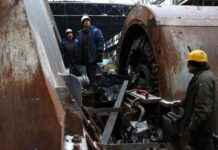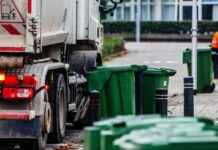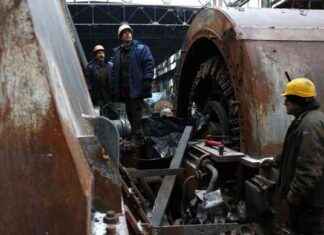For years, the government wants to bring more freight to Rail – which would relieve roads and climate. But still goods, rolls, mainly on Trucks through the country.
the share of Rail in freight transport has been stagnating for years at about 18 percent, the FDP-transport policy-makers Christian Jung: “Man has failed in the last 15 years to modernize Deutsche Bahn and especially the railway network in Germany so that you can map additional capacity.” The rail network is not obsolete, only in many Places, since the railway reform of 1994, it also became about 20 percent shorter.
A larger share of rail in freight transport, however, would relieve the roads and would be also with a view to the climate policy objectives of the Federal government makes sense. For years, this will bring more goods on the Rail alone, it doesn’t work. Therefore, the Federal transport Minister, Andreas Scheuer invites you to the 8. National conference of freight transport and logistics to Frankfurt.
ideas and plans of the Federal government-there is no shortage. But the implementation leaves something to be desired, Urs Maier, an expert for the transport of goods in the think-tank Agora shift in Traffic. “The problem is the implementation, in my opinion, because there is an under-funding of rail projects,” he says. “But it’s not easy so that you can invest more money and then everything will be better. There are also Disincentives.”
Better funding, faster implementation
Disincentives are about in the so-called performance and financing agreement between the Federal government and the railway in terms of rail infrastructure. And construction of new state – financed is, in fact, for the maintenance of the railway will have to pay yourself. Infrastructure companies should, however, generate a profit. So the incentive to postpone investment – at the expense of substance.
On the money is no longer to fail to the strengthening of the Rail in the future, emphasizes Steffen Bilger. The CDU politician is the coordinator for freight transport and logistics in the Federal Ministry of transport. “At the moment, we will feel the wind from the back,” he says. “Because, I think, everyone has understood that we need to invest more in Rail, we now have the necessary budgetary resources. This is, of course, remain in the policy, a continual struggle that will be in the future.”
Better financing is the one that faster implementation of projects, the other. Bilger holds the planning process in Germany for too long. To implementation, it takes often too long: “I make this point again and again that many Stakeholders already believe it is, that such large projects are even started.”








